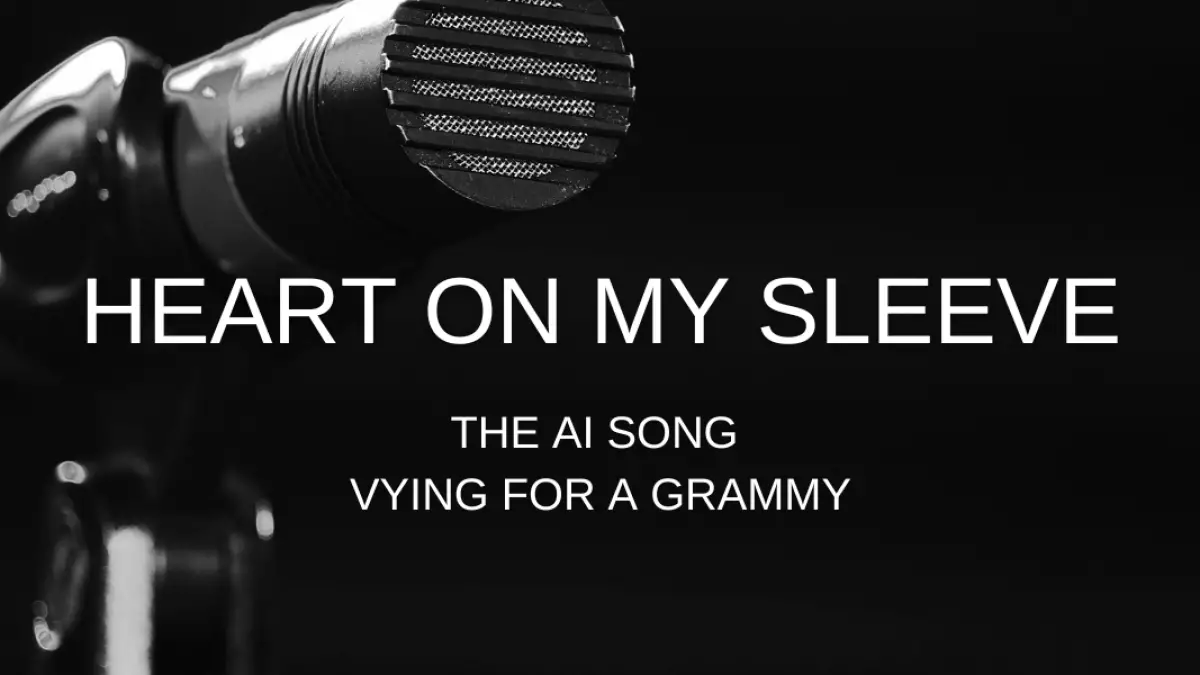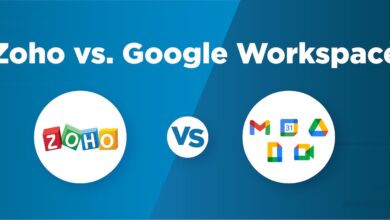Groundbreaking AI-Crafted Song “Heart on My Sleeve” by Anonymous Artist Ghostwriter Submitted for Grammy Consideration

Groundbreaking AI-Crafted Song “Heart on My Sleeve” by Anonymous Artist Ghostwriter Submitted for Grammy Consideration
In an unprecedented move that blurs the lines between artificial intelligence and human creativity, an AI-generated song titled “Heart on My Sleeve,” skillfully mimicking the styles of Drake and The Weeknd, has been submitted for Grammy consideration. The track, created by an enigmatic artist known only as Ghostwriter, has been entered into the highly coveted categories of Best Rap Song and Song of the Year, raising questions and sparking discussions within the music industry.
The decision to submit “Heart on My Sleeve” for Grammy consideration has ignited a fierce debate among music enthusiasts, AI experts, and industry insiders. While some applaud this bold venture into the realm of AI-generated music, others question whether an AI-generated piece can truly be considered for such prestigious accolades.
Ghostwriter, the AI artist behind the song, has remained shrouded in mystery, refusing to reveal their identity. However, the undeniable talent showcased in “Heart on My Sleeve” has sparked intrigue and curiosity across the industry. The song’s haunting melodies, evocative lyrics, and intricate production have led many to question the boundaries of human and AI creativity.
Recording Academy CEO Harvey Mason Jr. weighed in on the matter, stating that “it’s absolutely eligible because it’s written by a human.” This assertion underscores the belief that the AI, while responsible for the song’s composition, remains a tool guided by human input and creative direction. The AI, in this context, can be viewed as an extension of the artist’s vision rather than a standalone entity.

The concept of AI-generated music is not entirely new, as various AI algorithms have been used to assist artists in the creative process. However, the submission of “Heart on My Sleeve” for Grammy consideration represents a significant leap in the recognition of AI’s role in shaping the music industry. The question remains: can a piece of music primarily crafted by artificial intelligence genuinely compete on the same level as compositions created by human musicians?
“Heart on My Sleeve” has garnered attention not only for its AI origin but also for its compelling composition. The song showcases an impressive command of Drake and The Weeknd’s signature styles, seamlessly blending elements of rap and R&B. Its emotionally charged lyrics delve into themes of love, heartbreak, and self-discovery, resonating with listeners on a profound level.
The controversy surrounding this AI-generated submission raises important questions about the future of music composition and its intersection with technology. While purists argue that music should be a product of human emotion and creativity, proponents of AI-generated music suggest that these tools can enhance the creative process, pushing the boundaries of what is possible.

It’s essential to acknowledge that AI has already made inroads into various creative industries, including art, literature, and music. AI-driven algorithms can analyze vast amounts of data to identify trends, patterns, and preferences, enabling artists to refine their work and connect with audiences more effectively. In the case of “Heart on My Sleeve,” the AI’s ability to mimic the styles of established artists has the potential to resonate with fans who appreciate these iconic sounds.
Additionally, the anonymity of Ghostwriter adds an element of intrigue to this AI-generated project. In a world where artists are often thrust into the spotlight and scrutinized for their personal lives, Ghostwriter’s decision to remain anonymous may symbolize a shift towards a more private, artist-centric approach to music creation.
Critics argue that music should be an intimate expression of the artist’s emotions and experiences, a deeply personal endeavor that cannot be replicated by machines. However, proponents of AI-generated music contend that these technologies can serve as valuable tools for musicians, offering new ways to experiment with sound and push creative boundaries.
The Grammy Awards have long been considered a barometer of musical excellence, celebrating artists who have made significant contributions to the industry. The inclusion of an AI-generated song in the nominations raises questions about the evolving definition of artistry in the digital age. Is it possible for AI to be recognized as a legitimate creative force in the world of music?
One crucial aspect of this debate is the level of human involvement in AI-generated music. While the composition of “Heart on My Sleeve” was primarily driven by AI algorithms, the creative direction and input came from a human artist or team. This collaborative approach blurs the line between human and machine, highlighting the potential for synergy between AI and human creativity.
The role of AI in music creation is not limited to mimicry; it can also enable artists to explore new frontiers of sound and composition. By analyzing vast musical databases and identifying hidden patterns, AI can help artists generate novel ideas and experiment with unconventional elements.
Moreover, AI-generated music can be a powerful tool for accessibility in the music industry. It can provide opportunities for emerging artists who may not have access to traditional studios and resources. AI-generated compositions can serve as a creative starting point, allowing artists to build upon them and infuse their unique style and perspective.
While the controversy surrounding “Heart on My Sleeve” continues to simmer, it is undeniable that AI is reshaping the creative landscape of the music industry. As technology continues to advance, it will be interesting to see how AI-generated music evolves and whether it can coexist harmoniously with traditional human-created compositions.

The Recording Academy’s decision on the eligibility of “Heart on My Sleeve” for Grammy consideration will undoubtedly set a precedent for the industry’s future. It may spark further discussions on the role of AI in art, ethics, and the definition of creativity itself.
In conclusion, the submission of “Heart on My Sleeve” for Grammy consideration by anonymous artist Ghostwriter has thrust AI-generated music into the spotlight. While the debate over its legitimacy rages on, it is undeniable that this bold venture represents a significant milestone in the ever-evolving relationship between technology and creativity. As the music industry continues to grapple with the impact of AI, one thing remains certain: “Heart on My Sleeve” has opened a new chapter in the ongoing story of music innovation and artistic exploration.




